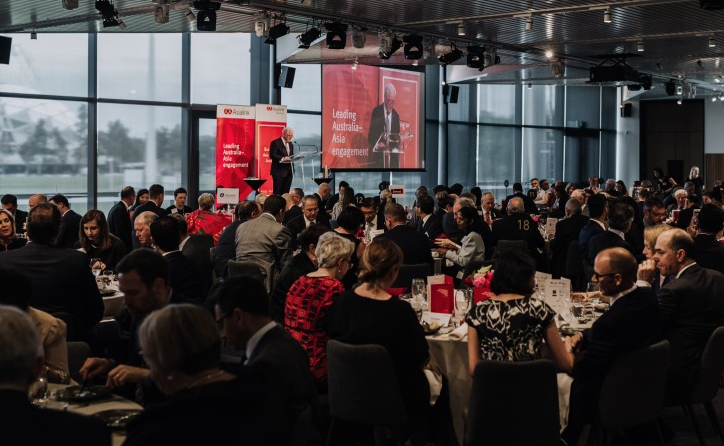The Australian
Glenda Korporaal
Former Trade Minister Andrew Robb has urged the Federal Government to turn down the anti-Chinese rhetoric and “urgently” lower the temperature of its strained relationship with China.
Addressing a dinner of Asialink Business in Sydney on Wednesday night, Mr Robb said Australia needed to learn some “nuance” in its relations with Asian countries, particularly China, and recognise the “humiliation” many countries in the region had suffered in the past at the hands of foreign powers.
“The level of rhetoric between Australia and China over the last 12 months needs to be far better managed,” he said.
“Legitimate issues need to be addressed, but without being accompanied by the often offensive rhetoric.”
Mr Robb said Australia needed to be careful how it dealt with major countries in Asia “while still representing our own sovereignty.”
“We have to learn a bit of nuance in how we deal with Asia in the next few decades,” he said.
“The temperature in our relationship (with China) urgently needs to be lowered.
“Australia needs to take the initiative.”
Mr Robb warned that there could be potential conflict if countries did not recognise that India and China were inevitably going to play a growing role in the region and the US would lose its role as the dominant power.
“Two countries — China and India — will progressively share the balance of power in Asia with the US,” he said.
“The US has led the world for seventy years. It has been a strong leader.
“But whether they like it or not, whether they accept it or not, the US is inevitably going to be sharing that.
“We need a sharing of power so they can all keep one another honest.”
He said Australia needed to recognise that some countries in Asia, including China, felt they were now recovering from 200 years of humiliation and were now reclaiming their old level of influence in the region.
Mr Robb, who is chair of Asialink and Asialink Business, was speaking as Prime Minister Turnbull arrives in Washington for talks with US President Trump where relations with China are expected to be a key topic of conversation.
His comments reflect a rising concern in business circles in Australia that increasing anti-China rhetoric coming from the Turnbull government could start impacting Australia’s strong economic ties with its biggest trading partner.
Mr Robb said the centre of political and economic power was moving back towards Asia. He warned that there could be conflict in the process of transition in Asia if “it was not managed” correctly.
His comments come after a board meeting of Asialink where the rising tensions between Australia and China were discussed.
Mr Robb said Australia had only seriously begun trading with Asia in the last 30 years, after its initial focus on trading with Europe and the US, and had not learned to understand the long history of the region.
He said Australia had not learned to develop a real mutual respect and a cultural understanding of Asian countries as much of its trade was in commodities which were sold through brokers.
“Most of our exports have gone through brokers,” he said. “If you go through a broker, you don’t learn cultural differences, you don’t build mutual respect with different countries.”
But he said that scenario was about to change with the rising power of China and India in the Asian region which would inevitably challenge the US dominance in the region.
He praised the work of Asialink and its business arm Asialink Business for helping to develop “mutual trust and respect” in dealing with Asia.
Mr Robb’s comments come as business leaders who deal with China have become increasingly concerned at anti Chinese comments coming from Canberra including issues being raised about the level of Chinese “spying” in Australia, the role of Chinese students in Australia, the need for tighter security legislation, Chinese investment in Australia and the Pacific Islands.
Mr Turnbull’s recent attempts to justify tighter security legislation in Australia by quoting Chairman Mao have privately horrified some Australians doing business with China because of a perceived lack of political sensitivity.
Business leaders are also watching the potential impact of the arrival of the new US ambassador to Australia, Admiral Harry Harris, who is seen as a hawk on China, and how this could impact on the future rhetoric from Canberra about China.
